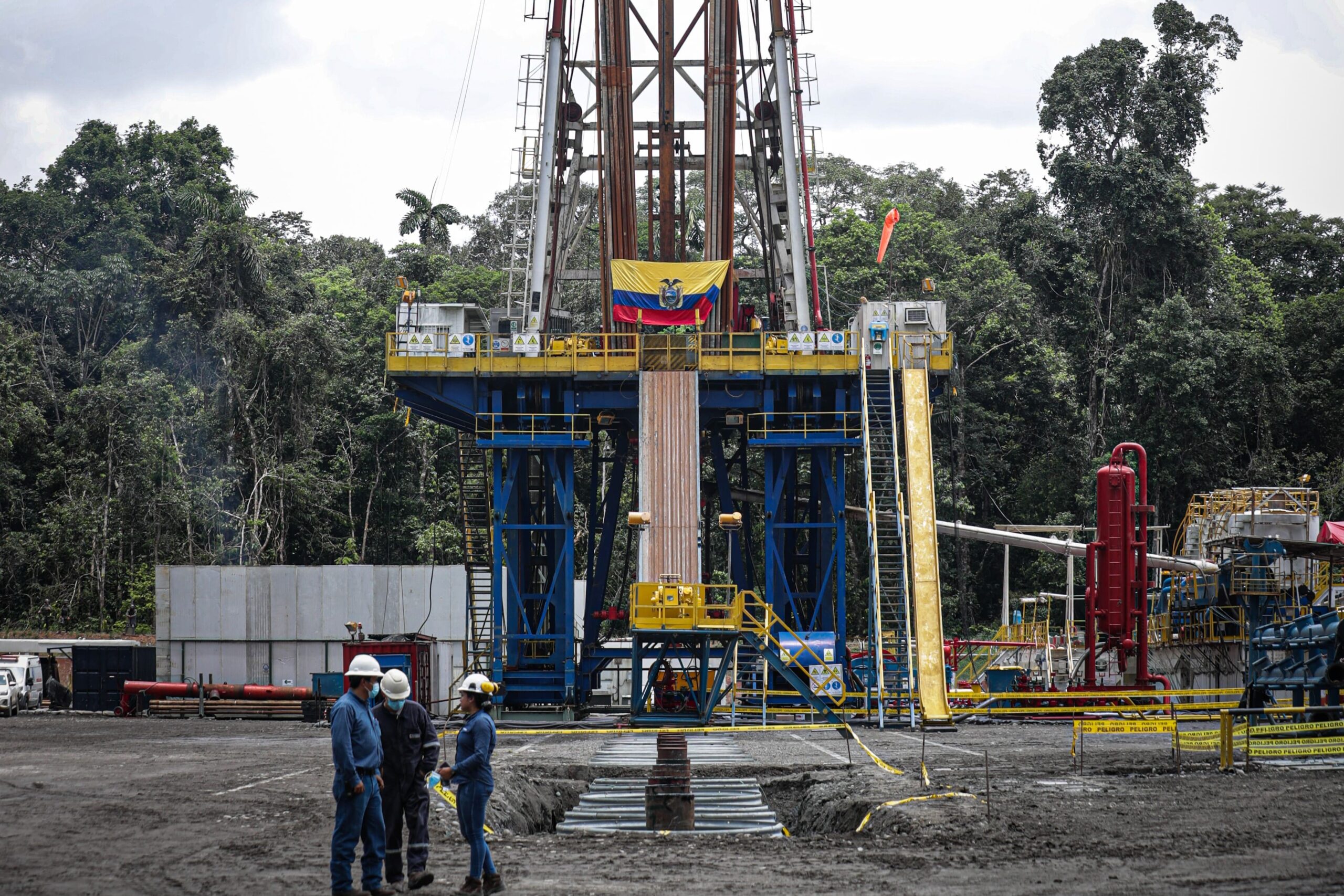The fate of the Yasuní rainforest, at the heart of the Ecuadorian Amazon, will be decided at the polls this August, when the South American nation votes on whether to leave large oil reserves found within Yasuní on the ground.
It is the first time that Ecuadorians will vote on an ecological issue of this magnitude. Experts consulted by Climate Home News said the referendum will define the economic model for the country’s future.
The environmental referendum is a first of its kind for Ecuador and, if approved by a simple majority of Ecuadorians, would ban all new oil wells in the Yasuní park, as well as phasing out existing concessions.
Norway approves oil and gas fields despite Cop fossil phase-out push
Pedro Bermeo, spokesperson for Yasunidos, a coalition of NGOs that led the call for the vote, said the public debate around climate change is already a victory. He added the referendum is a “milestone in the history of Ecuador”.
“Beyond the result, we must see this as an opportunity to value what this referendum has already provoked: a national debate that has never existed before,” Bermeo said.
The vote is scheduled to take place on August 20. At the time of publication, there have been no public opinion polls.
Vote for the rainforest
The Yasuní National Park, Ecuador’s largest, hosts one of the largest biodiversity hotspots on Earth, and is the home of the Tagaeri and Taromenane people in voluntary isolation.
For decades, Yasuní has been threatened by extractive industries, such as mining and oil. For over six years, Ecuador’s State oil company, Petroecuador, has been operating in this territory.
According to reports from the Andean Amazon Monitoring Project, at least 689 hectares have been deforested in the Yasuní, most of it, by the oil industry.
This is the size of 1,200 American Football fields and exceeds the 300-hectare limit established after a previous referendum in 2018.

Ecuador, Amazon Rainforest, Rio Napo, Near Coca, in the Yasuni National Park, on November, 14 2022. (Photo: Reuters / Stevens Tomas / ABACA)
Data provided by the Ministry of Environment, shows there have been more than 1,500 oil spills in the Ecuadorian Amazon in the last decade, which means at least 12 occur every month.
Experts warn that both deforestation and oil spills threaten the unique biodiversity of the Amazon.
Activists have called for a vote on whether to keep drilling for oil in this region but, in 2013, the country declared Yasuní as an area of national interest and began extracting crude soon after.
Bermeo’s Yasunidos proposed a referendum to nullify the declaration, but the process was blocked by an electoral court.
Threat of EU carbon tax prompts dubious “green aluminium” claims in Mozambique
Climate debate
The current government says approving the referendum can have “catastrophic” effects on the economy. Still, they’ve claimed they won’t campaign against it.
Fernando Santos, Energy Minister, has said in several interviews that the country “won’t gain anything by not producing [the Yasuní] ITT oil”. He has also argued that removing existing infrastructure will actually have negative costs for the country.
But experts claim the benefits from oil in Ecuador’s Amazon could be short-lived.
During a hearing at the Constitutional Court, Petroecuador’s technicians explained the oil from Yasuní is low-quality “extra-heavy crude”, which requires high investments to process and sell.
When drilling began in Yasuní, Petroecuador expected to reach a daily production of 200,000 oil barrels by 2022. However, official data shows it has remained at 55,000 — about a quarter of what was expected. Pedro Bermeo says that the “figures they [the government] are giving are false”.
As a result, a 2019 study by the Geological and Energetic Research Institute, a public research institution in Ecuador, estimated that by 2029, “oil could no longer be the main source of income” in the country. The study called for a change in the economic model.
Latin America leads resistance to global shipping emission tax
An important precedent
Luis Suárez, Executive Director at Conservation International Ecuador, said the referendum is an opportunity to rethink the country’s future, and suggested a move to tourism and bioeconomy. “What is the country going to bet on?”, he asked.
Domingo Peas, Territory Coordinator for the Cuencas Sagradas Initiative and a longtime leader of the Achuar nationality, says the vote will be “historic for Ecuador and the world” because “it will frame strategies for the next generation”.
For the indigenous nationalities living in the Amazon, including the Tagaeri and Taromenane, the referendum is a way of respecting their human rights, he added.
“We, indigenous people, have said that we only want a dignified life”, and the approval of the referendum will grant that, Peas said.
Still, all experts consulted said the referendum will not stop oil production overnight. “We know these changes take time”, said Peas, “but it is imperative that they occur eventually”.
